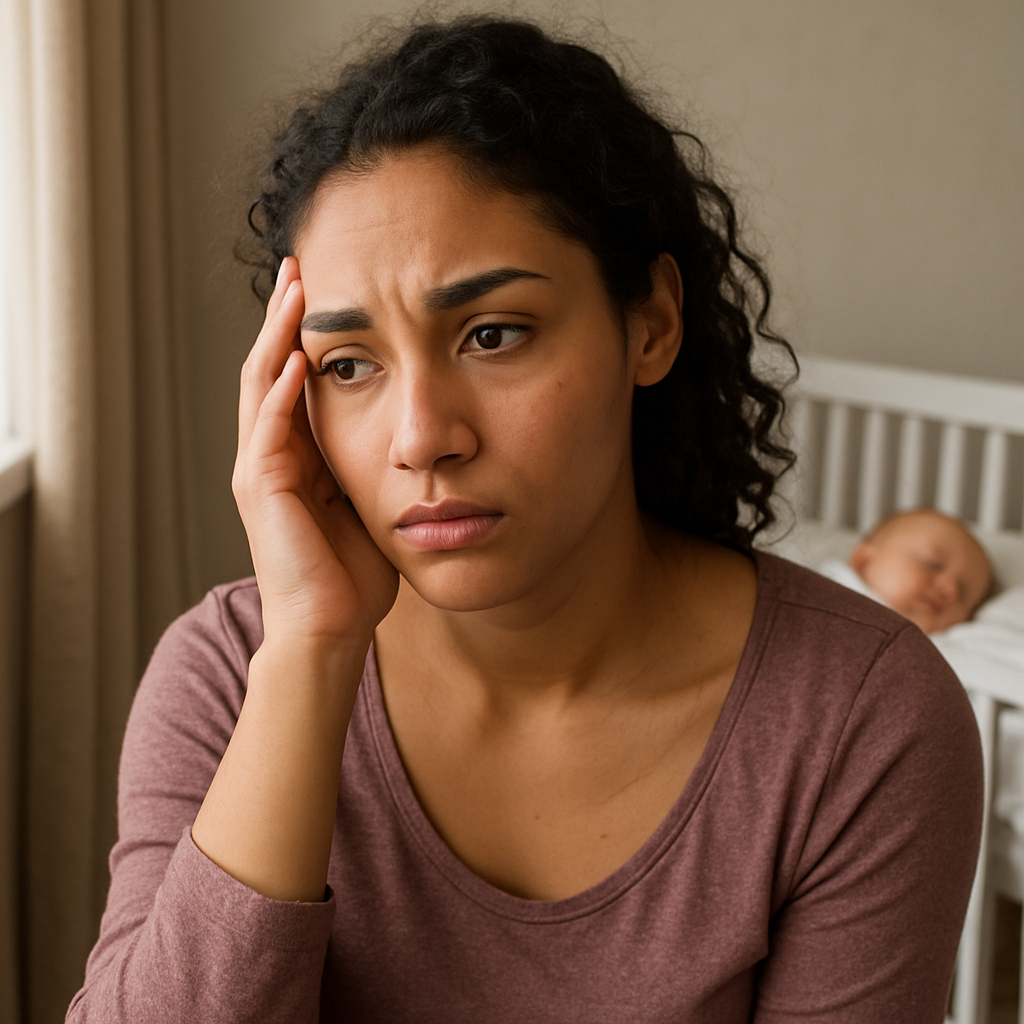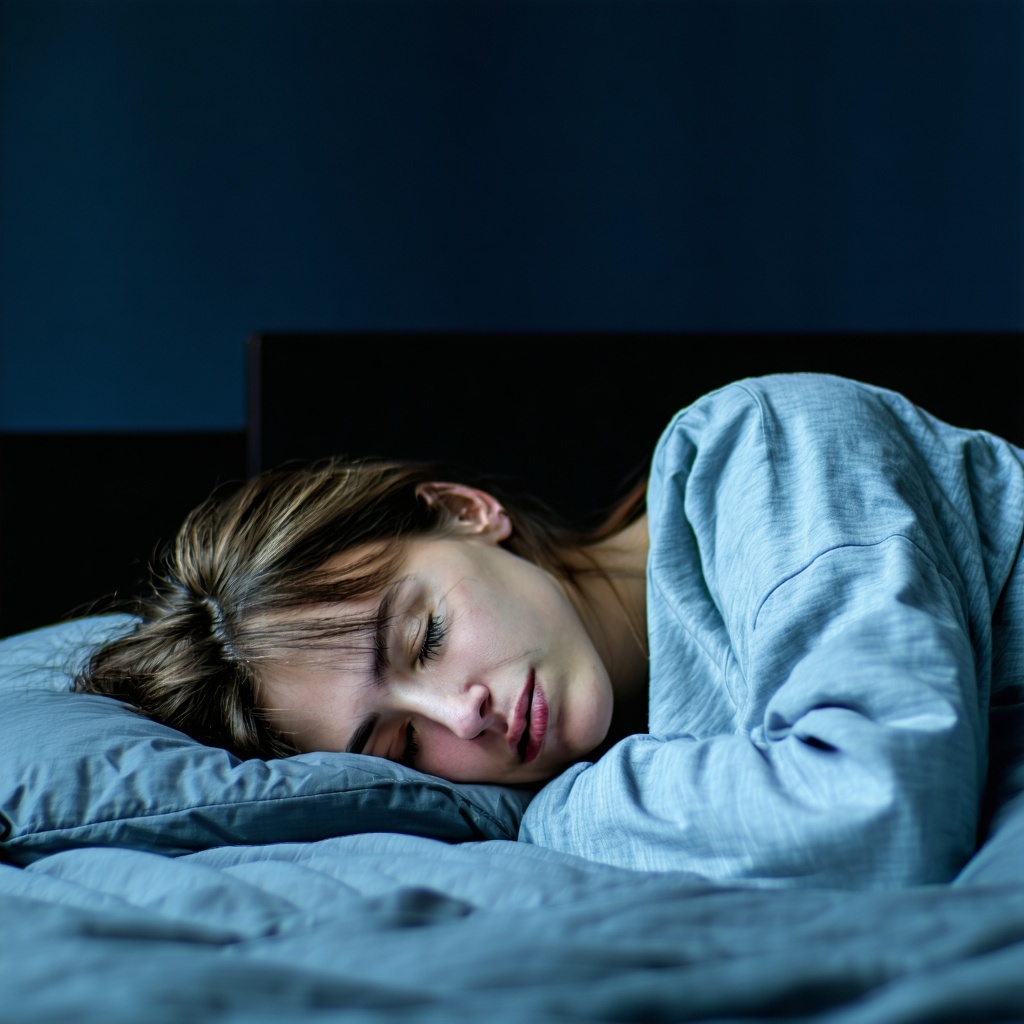Let's Talk About Women's Mental Health Medication
From postpartum to perimenopause to menopause-because your brain deserves care in every season. So, here’s the thing: you’re not imagining it. You’re...

(Spoiler alert: It's not about changing who you are-it's about helping you feel more like yourself.)
When someone brings up the idea of taking medication for depression, it's common for a whole mix of reactions to pop up-curiosity, hope, confusion, and let's be honest, sometimes a little fear.
Maybe you've wondered:
“Will it make me feel like a zombie?”
“What if I get dependent on it?”
“Isn't taking medication a sign of weakness?”
Or the classic: “Do I really need this, or can I just drink more green smoothies and try yoga?”
First things first: if you're asking these questions, you're not alone. And no, taking medication for depression doesn't mean you're weak, broken, or doing life wrong. It just means your brain might need a little extra support right now-and that’s okay. Let’s take the pressure off perfection, shall we?
Before we dive into the meds, let's zoom out for a second. Depression isn't just "feeling sad." Sure, sadness can be part of it-but depression can also look like:
It’s more than a “bad mood.” Depression impacts everything-your thoughts, your energy, your body, your relationships. You might be eating too much or not at all. Sleeping too little or too much. You might feel like a burden to the people around you-or like they’d be better off without you. (They wouldn’t. Just in case you needed to hear that today.)
In short, depression can steal your spark, your drive, your hope.
It's not a moral failing. It's a mental health condition, i.e.: your brain chemistry, environment, and life stressors are all tangled up, and medication is one way to start untangling the knots. You wouldn't second guess taking antibiotics for an infection or insulin for diabetes, so why second guess treatment for something affecting your mind and body every single day?
Let’s bust a myth right out of the gate: antidepressants don't give you artificial happiness. They aren't “happy pills,” and they won’t make you walk around like a grinning emoji in a rom-com montage. In fact, if you do feel overly giddy or “not yourself,” that’s a sign to check in with your provider.
Instead, these medications help restore balance to the chemicals in your brain-especially serotonin, dopamine, and norepinephrine-so your system can function the way it’s meant to.
Think of it like this: if your brain is a car, depression can feel like driving with the parking brake on. Medication doesn’t replace the driver-it just releases the brake. You're still in control, but now you're not dragging something behind you everywhere you go.
Or better yet? Think of a foggy windshield. You can technically keep driving, but it's dangerous and exhausting. Antidepressants are like turning on the wipers-not because the weather changes, but because you can finally see the road.
There are several classes of antidepressants, and your provider will help determine the best fit based on your symptoms, medical history, and lifestyle. It’s not a guessing game-there’s actual science and clinical reasoning behind the choices.
These are usually the first stop. They increase serotonin and are often well-tolerated.
Examples: Lexapro, Prozac, Zoloft, Paxil
These target both serotonin and norepinephrine, so they can also help with low energy, pain, and focus.
Examples: Cymbalta, Effexor XR
These are the wild cards that don’t quite fit in the above categories but can be just as effective.
Example: Wellbutrin-often used when fatigue, lack of motivation, or low libido are part of the picture. It doesn’t typically cause weight gain or sexual side effects, which is a plus for many.
Old-school but still sometimes useful when other meds haven’t worked. These come with more dietary restrictions and side effects, so they’re not usually the first thing we try-but they’re not off the table either.
This is one of the most common fears I hear. The short answer: no, it won’t change your personality.
What I do hear from clients who find the right medication is something like:
“I don’t feel ‘high.’ I just feel like I can breathe again.”
“I’m still me. But I don’t cry in the grocery store anymore.”
“I finally laughed at something—and I meant it.”
The goal isn’t to erase your emotions-it’s to help you feel regulated. More stable. More capable. So if you’re afraid you’ll become someone else, hear this: the right medication doesn’t change who you are-it helps you come back to yourself.
Let’s be honest: side effects can happen. But most are mild and temporary. They often show up in the first week or two and fade as your body adjusts.
Common side effects:
Nausea or stomach upset
Changes in appetite or weight
Sleep changes (too much, too little, or just... vivid dreams)
Decreased libido (yep, we talk about that too-it’s real, and it’s fixable)
Here’s the key: side effects don’t mean the medication isn’t right. They just mean your body is adjusting. And if they’re intense or lasting, your provider can switch meds or adjust your dosage. This is a collaborative process-not a one-and-done prescription.
Most antidepressants take 2–6 weeks to really kick in.
I know, I know-we live in a world of next-day shipping and instant everything. But medication works by slowly restoring balance to your brain. Think of it like planting seeds. The shifts might feel small at first, but they add up.
In the meantime, therapy, self-care, routine, and even basic things like hydration and sunshine can support the process.
Not necessarily.
Some people take it for a season. Others for years. Some stay on it long-term because that’s what keeps them functioning best. Everyone’s journey is different.
You wouldn’t stop wearing glasses just because your eyes didn’t “self-correct.” The same goes for brain chemistry.
So no-the goal isn’t to get off meds at all costs. The goal is feeling well. Stable. Clear. And safe in your own skin.
Any decision about starting, continuing, or stopping meds should be made with your provider, based on you-not what your cousin's roommate's aunt did.
Then you’re in exactly the right place to explore. You don’t need to be 100% certain to start a conversation. You don’t need to be in crisis, either.
A good provider won’t push meds on you. They’ll help you weigh your options and figure out what’s best for your body, your brain, and your life right now.
And if you try something and it doesn’t feel right? You’re allowed to change your mind. You’re allowed to say “this isn’t working.” That’s not failure-that’s feedback.
Let’s be clear: medication is a tool, not a total solution.
It helps level the playing field so that things like therapy, exercise, routine, and meaningful relationships can actually work.
The best outcomes happen when we combine tools:
Medication to restore stability
Therapy to process and heal
Sleep, movement, and nutrition to support your system
Connection-to friends, pets, nature, creativity, spirituality-whatever fills your cup
There’s no magic pill. But there is hope. And medication can be part of the bridge that gets you there.
And if you’re someone who’s tried all the “natural” fixes-exercise, journaling, green smoothies, gratitude lists-but still feel stuck? That doesn’t mean you’ve failed. It means your brain might need more support. And that’s not a character flaw-it’s a chemistry thing.
Taking medication for depression doesn’t mean you’re giving up.
It means you’re saying, “I want to feel better.”
It means you’re choosing relief.
It means you’re believing, even just a little bit, that things can change.
And they can.
Will there be a single magical moment where everything clicks? Maybe not. But over time, the fog can lift. The heaviness can ease. The color can come back into your world.
So if you’re tired of trying to “snap out of it”... if you’re showing up, every day, and still feel stuck... you’re not alone.
Talk to someone. A Psychiatric Nurse Practitioner or therapist can help you sort it out-no pressure, just support.
And no-you don’t have to hit rock bottom to get help. You just have to be tired of feeling this way. And ready to try something different.
And if there’s a comfy couch involved? Even better.

From postpartum to perimenopause to menopause-because your brain deserves care in every season. So, here’s the thing: you’re not imagining it. You’re...

And yet, when you’re struggling with sleep, it can feel like your brain is playing a cruel game: you’re exhausted all day, but the moment your head...

If school feels like a daily battle, you’re not lazy, broken, or “just not trying hard enough.” Medication for learning difficulties is sometimes...